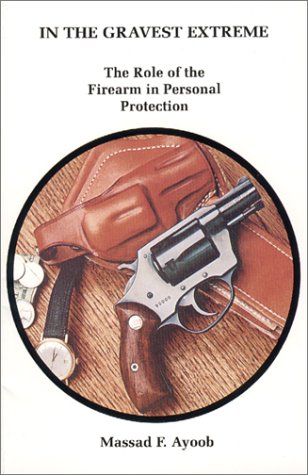What are
/r/FutureWhatIf's
favorite Products & Services?
From 3.5 billion Reddit comments
The most popular Products mentioned in /r/FutureWhatIf:
The most popular Services mentioned in /r/FutureWhatIf:
Academia.edu
Medium
Uncyclopedia
Wikimedia Commons
Google Play Books
Google News
Thesaurus.com
Goodreads
ZDNet
Android
Scoop.it!
HackADay
GasBuddy
Quora
The most popular VPNs mentioned in /r/FutureWhatIf:
The most popular reviews in /r/FutureWhatIf:
Also, during the Sino-Soviet split, the Soviets raised the possibility of a nuclear strike on China's nuclear weapons infrastructure at Lop Nor to the US.
The US reply was there would be a US retaliation in the form of a US first strike on the Soviet Union for it.
http://www.scmp.com/article/714064/nixon-intervention-saved-china-soviet-nuclear-attack
Yes, it is. Prior to the invention of the nuclear bomb, and MAD, 1919-1933 is only 12 years between world wars. Hundreds of millions of people erradicated within one generation. There are people that lived through both world wars. (quite a few actually). Had it been not for nuclear weapons, the war would have likely lasted until 1949 of 1950.
Millions of Japanese people would have been slaughtered, and about a million allied troops would have been killed. The "red wave" would have taken over the Korean peninsula, and Japan would likely be much as Korea is today. (a divided country between USSR and USA allies). Fun fact: Japan is still at war with Russia.
Let's say the great conflict ends in 1950, (probably not that far off). Without the invention of the atomic bomb, (and later the thermonuclear bomb), the USSR and USSR would likely have reached an "unstable peace", and instead of the Cuban Missile Crisis ending in a draw, a new war would have likely raged across Europe as the USSR had far more men and weaponry at the time (1960's).
Instead of cordoning off berlin, and the berlin air drop, (the only reason why they didn't invade was because of the fear of atomic warfare), they would have likely taken it by force, and pushed into the BRD, kicking off WWIII by 1962. Thermonuclear weapons, and MAD are a stabilizing force in the world, like it or not.
EDIT:Currently, the global arsenal is about 7100MT, that's the explosive power equal to about 2,334 world war II's happening within the course of a quiet Sunday afternoon.
This is an interesting take on looking at the Star Trek universe as a post-scarcity economy and the (observed) social implications, and going off that template. Or something like that. Cool introduction to the idea as a thought experiment.
There's this article in the references which goes in to a bit of detail about his life afterwards. He still had to (by order of the doctors) take sleeping powders and close his eyes for at least 1 hour a night to rest his optic nerve but other than that, he never felt tired and even had a routine.
Because he was poor, he could not travel or visit nightclubs, instead, he would read a book until 12 am, do some studying until 2am, have his rest until 3am, he then went for walks to a restaurant by the train station watching people coming and going for a couple of hours, during the summers when it was light at 5am, he would tour the local parks and chat to the people who lived there, during winter when it was darker, he would chat to people huddled in doorways, talk to taxi drivers and watch the lamp lighters put out the lights and finally, on his way home he would make conversation with the morning janitors, police and the street vendors before it was time for breakfast and work. It's amazing to think he got to live twice as much as anyone else in those 40 years.
>The price of mailing and shipping dramatically explodes in the US over the subsequent five years as there is no longer anything holding the price down.
Except the private market dominates their price even when not allowed to compete on the same level field:
>Brannon hand delivery still to cost a dime
The Postal Service is looking ahead to a $.15 stamp, but the P.H. Brannon hand delivery service has no intention of raising its rates from a dime not even to pay the lawyers bills from its court fight to stay in business.
It embarrassed the US government so much that they shut them down:
I can't answer this question, but if this is a question you find interesting, I would suggest you may be interested in reading the Neanderthal Parallax trilogy by Robert J. Sawyer, which posits a parallel universe in which the neanderthals advanced and cro-magnons died off, and in current times, the two universes are linked.
I remember reading about how quantum computer would only halve the strength of some encryption.
Seems like it was symmetric ciphers I was reading about.
https://en.wikipedia.org/wiki/Post-quantum_cryptography#Symmetric_key_quantum_resistance http://hackaday.com/2015/09/29/quantum-computing-kills-encryption/
However can symmetric ciphers be used in all instances where public key encryption is currently used? Or would it only be useful in protecting personal data?
http://www.everydaynodaysoff.com/2009/10/21/ge-m134-mini-gun-fully-transferable/
Pretty much the only thing off the table right now are antimateriel missiles, but there are several improvised alternatives to most weapon systems.
http://www.amazon.com/Davids-Tool-Kit-Citizens-Brothers/dp/155950143X
That's pretty much the basis of the Larry Bond book Lash-Up. Pretty decent read (I have the abridged version that's in Stephen Coonts' Combat omnibus.
Consider reading the title story from Shuteye for the Timebroker, by Paul di Filippo
> A timebroker mediated between individuals and institutions, citizens and the government. Individuals registered their shifting schedules hour by hour with a timebroker of their choice. During such and such hours, they would be willing to work; during other hours, they were interested in attending a concert, a ball game, a university class, a gym. Contrarily, institutions registered their needs. The symphony wants a thousand listeners at four a.m. on Sunday. Can you provide them?








